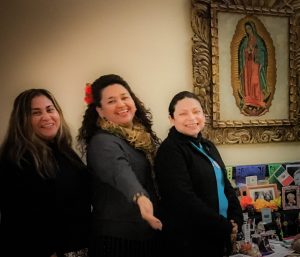
In our culture, we have grown conditioned to judge encounters on first impressions. While there’s validity to the saying “Don’t judge a book by its cover,” we too often do the opposite. The marketing industry and consumer culture depends on us being superficial in judgments. Whether we’re buying food, clothing or anything else, we ‘re drawn to well-known and popular labels and brands that have earned trust.
This attachment to and penchant for preferred labels goes even further for people who can afford luxury items. A Gucci or Louis Vuitton purse, a Lamborghini, a Tiffany necklace or ring can be very tempting. The idea of consuming generic brands is often undesirable, so we save up and even sacrifice things to be able to buy things beyond our means. In short, consumerism has taught us to value ourselves by the external items we possess, so the material things we seek become a status symbol.
Once we allow material or external things to define who we are, it isn’t difficult to have stereotypes and biases dictate social interactions. For example, we might assume that a person who is dressed in a certain way or lives in a particular neighborhood is either more or less worthy of respect and admiration. Rather than let the quality of our human encounters to be the determining factor, we often give credence to prejudices and avoid meeting and engaging one another.
Yet, we know from our faith that who we are and how we are to relate to one another goes beyond these stereotypes and biases (James 2: 1-5). In the Gospel stories, for instance, Jesus engages and interacts with all kinds of individuals and communities. Jesus doesn’t shy away from encountering the rich (Luke 18: 18-30) and the poor (Matthew 11: 4-6) alike. Similarly, Jesus is unafraid to encounter individuals from other communities; for example, the Samaritan woman at the well (John 4: 4-42) and the Syrophoenician woman (Matthew 15: 21-28).
In Jesus’ interactions with others, we witness how the quality of human encounters can be enriching and, in some cases, even transformative. For example, in His interaction with the rich young man, Jesus invites him to look beyond material possession, and encourages him to live a more authentic life by following in His footsteps: “Sell everything you have and give to the poor, and you will have treasure in heaven. Then come, follow me” (Luke 18: 23).
Likewise, in His exchange with the Syrophoenician woman, we see how Jesus doesn’t follow the stereotypes and biases of his time and culture and responds favorably to the relentless begging of the women who was undeterred by Jesus’ initially challenging words: “And He answered and said, ‘It is not good to take the children’s bread and throw it to the dogs.’ But she said, ‘Yes, Lord; but even the dogs feed on the crumbs which fall from their masters’ table’” (Matthew 15: 26-27). Her courage and persistence manifests to us the transformative power that comes with opening our hearts to the goodness of others.
These stories indicate to us just how much is at stake when we dare to engage one another in trust and vulnerability. Whether we define ourselves by the material wealth we possess or by the cultural biases we hold on to, Jesus’ invitation is to open ourselves to the mutual enrichment that comes from being close to one another. Ours is a faith that seeks to go beyond divisions and partialities to become more fully who are: the one Body of Christ.
F. Javier Orozco
First published September 13, 2018 in the St. Louis Review
